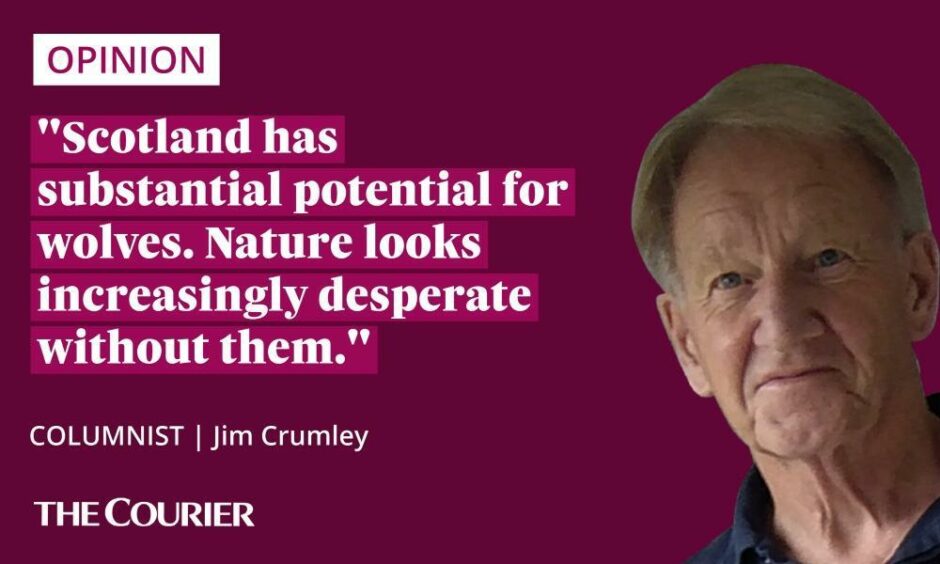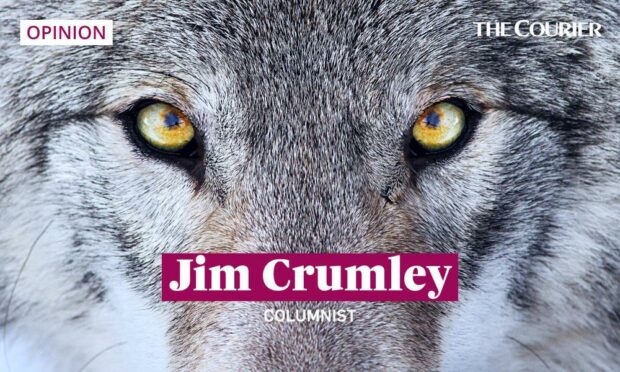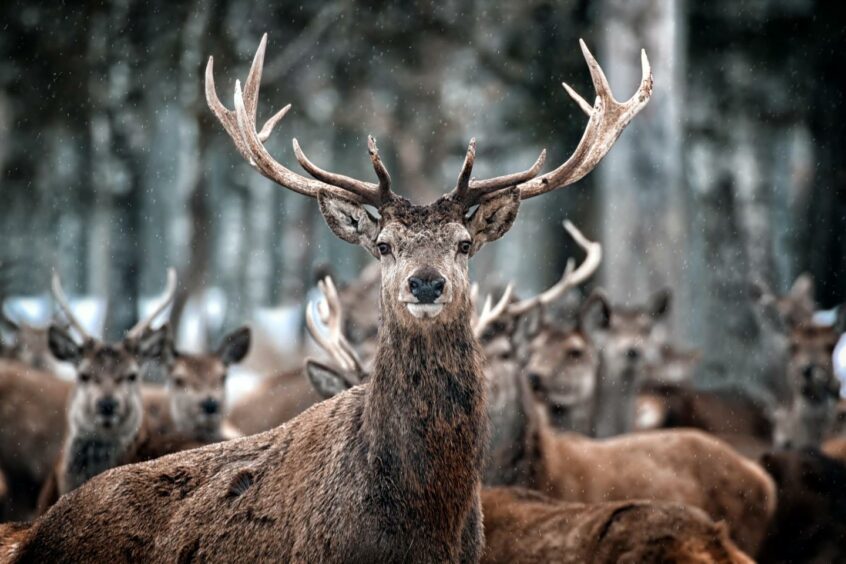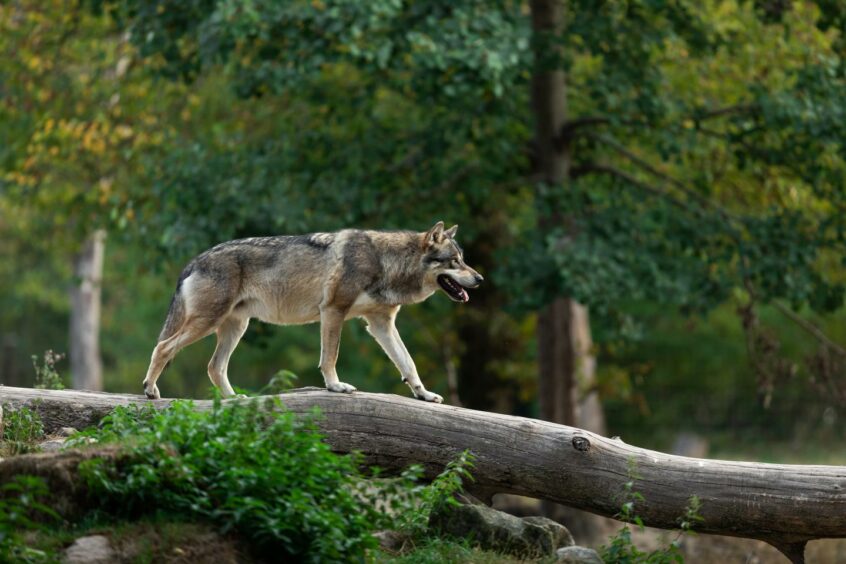I keep asking this question, and I never get an answer. What are they afraid of, what do they think will happen?
I am asking it again.
Forestry and Land Scotland has just announced a plan to spend the better part of £30 million of your money and mine killing 150,000 deer over five years.
The announcement was couched in familiar, cliché-strewn rhetoric.
Scotland’s deer population is “unnaturally high”, for example.
It doesn’t mention that it has been unnaturally high for around 250 years, which is roughly how long it is since the people who like to shoot deer finally rendered our native wolves extinct.

“Scotland is facing a substantial challenge in keeping its deer population at a level that is in balance with the environment,” according to the head of wildlife management at FLS.
“As responsible land managers we need to act to achieve the necessary balance within the deer population.”
It doesn’t say that “responsible land managers” have invented a very different idea from nature’s of what “the necessary balance” might look like.
This is nature manipulated out of all recognition by its worst enemy, which is people.
‘Let wildlife manage wildlife’
Not for the first time in this column, permit me to quote a friend in New Hampshire, a naturalist, writer and artist of rare distinction called David Carroll.
He says: “The term ‘wildlife management’, often used in the environmental polemics of the day in reference to human manipulations, is an oxymoron.
“We should have learned long ago to simply leave the proper natural space, to respectfully withdraw and let wildlife manage wildlife.”
Yes we should. But organisations like FLS, and private landowners from Galloway to Sutherland who all like to think of themselves as “responsible land managers” are terrified of the idea.
Besides, they don’t like to be told that nature is much, much better at the job.
Out of idle curiosity, I looked at FLS’s website, and on their idiot’s guide to wildlife (they don’t call it that, it’s just how it comes across) it has this to say about deer:
“They graze a wide variety of plants, from grasses and heather to shrubs and trees. They only cause damage to the forest if there are too many of them.”
But the numbers are “unnaturally high” because “responsible land managers”, having first eradicated the possibility of wildlife managing wildlife by removing top predators from the face of the land, will tell you that deer shooting, like grouse shooting, is good for the rural economy.
Yet a thoughtful, questioning mind will quickly conclude that the number of deer is not the deer’s fault, but rather that of the manipulators of their environment.
Wolves are thriving in Europe so why not Scotland?
At every level of government and at every level of professional environmental practice, Scotland has declined even to contemplate the glaring, commonsense solution – the reintroduction of wild wolves.
So I ask the question again. What are they afraid of, what do they think will happen?
I have heard people who I thought would know better baulk at the idea of wolves.
They say Scotland today is too different from the land as it was when wolves last lived here.
One conservation organisation actually posed the question: are wolves too wild for Scotland?
What surprises and disappoints me is the widespread level of the ignorance that still prevails in 21st century Scotland about the reality of living with wild wolves.
Wolves are in every country in mainland Europe and if we had a land bridge they would be here.
They have recently returned to countries like Denmark, the Netherlands and Belgium, and no one has died.
Belgium now proudly proclaims the Ardennes forest as a crossroads of the wolf in Europe.
Scotland is suffering from absence of wolves
So here’s how it works in Scotland, or anywhere else with “unnaturally high” deer numbers.
In the wolfless centuries, the deer have forgotten how to behave like deer.
As soon as you reintroduce wolves, even in small numbers, they start to move the deer around.
That means the deer can no longer browse a landscape to the bone.
That means in turn that regeneration of all plant life surges.
And that means in turn that insect life soars, especially pollinators, which attracts birds, small mammals, then predators…
In the most famous wolf reintroduction project in the world at Yellowstone, the first animals to follow the wolves were beavers.
In a landmark policy change, the Scottish Government has granted their first ‘edge-of-range’ beaver translocation licence to a working farm in Perthshire.https://t.co/xITHbacYTh
— BBC Wildlife (@WildlifeMag) November 10, 2021
As the wolves began to move and break up the huge herds of elk, the regeneration created new opportunities for beavers.
They brought with them their capacity to spread wetland and that in turn created more biodiversity.
And so the process ripples out throughout the length and breadth of the ecosystem.
Scotland has substantial potential for wolves. Nature looks increasingly desperate without them.
Let wildlife manage wildlife. It’s one of the most beautiful things you could ever hope to see.
Our job is to remove the obstacles that we have put in nature’s path, then stand back and watch and listen, look and learn.
So what are they afraid of, what do they think will happen?












